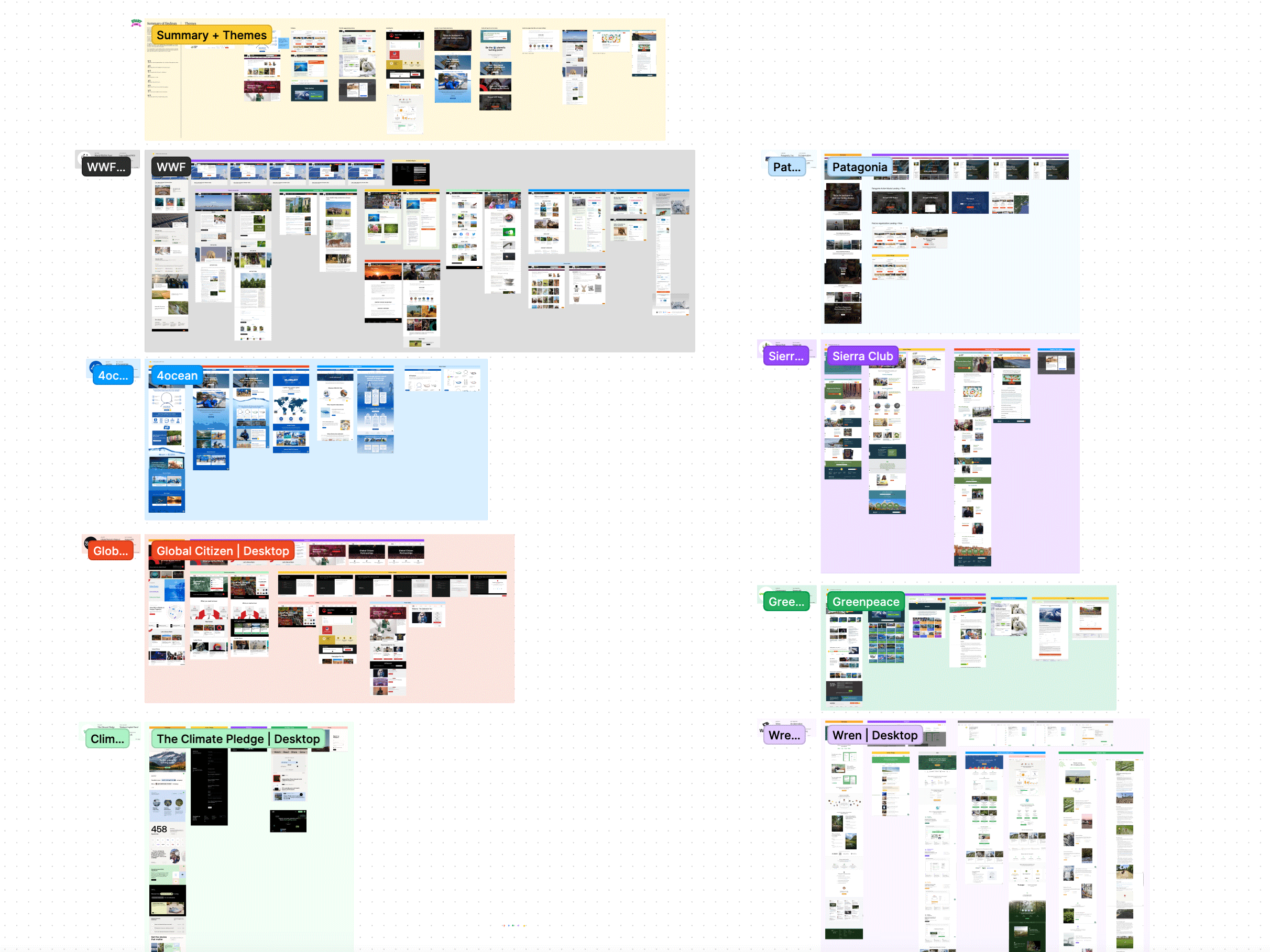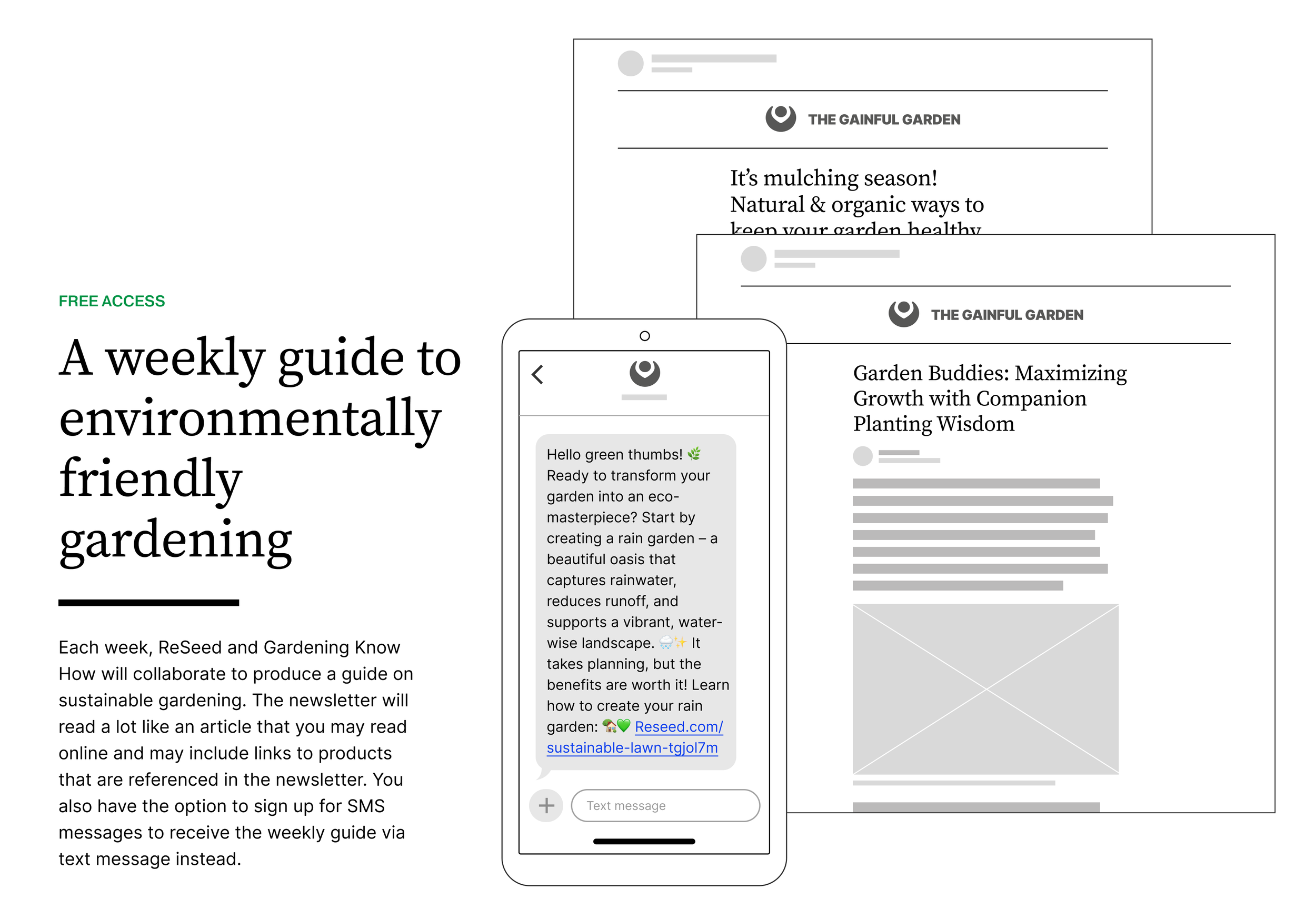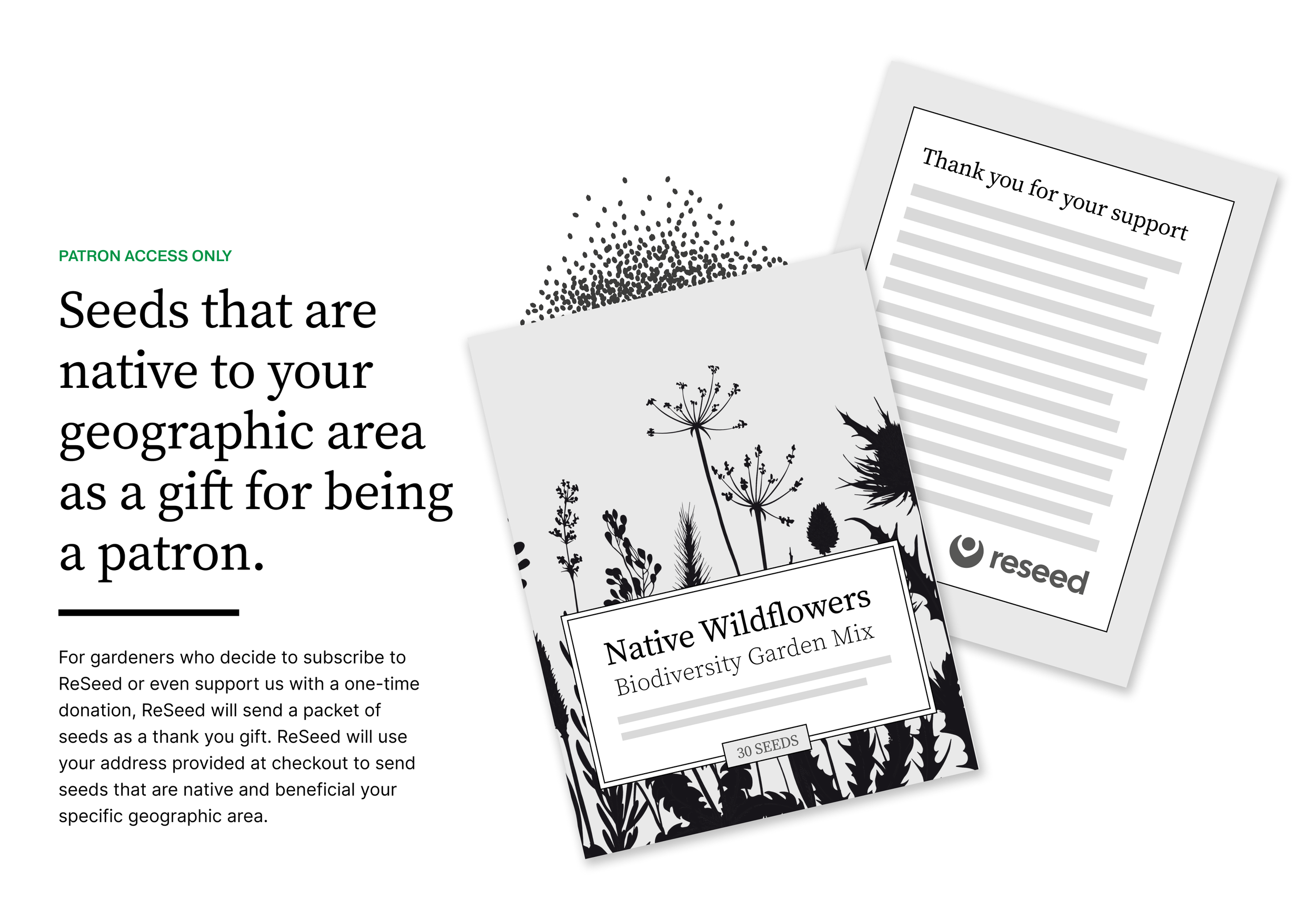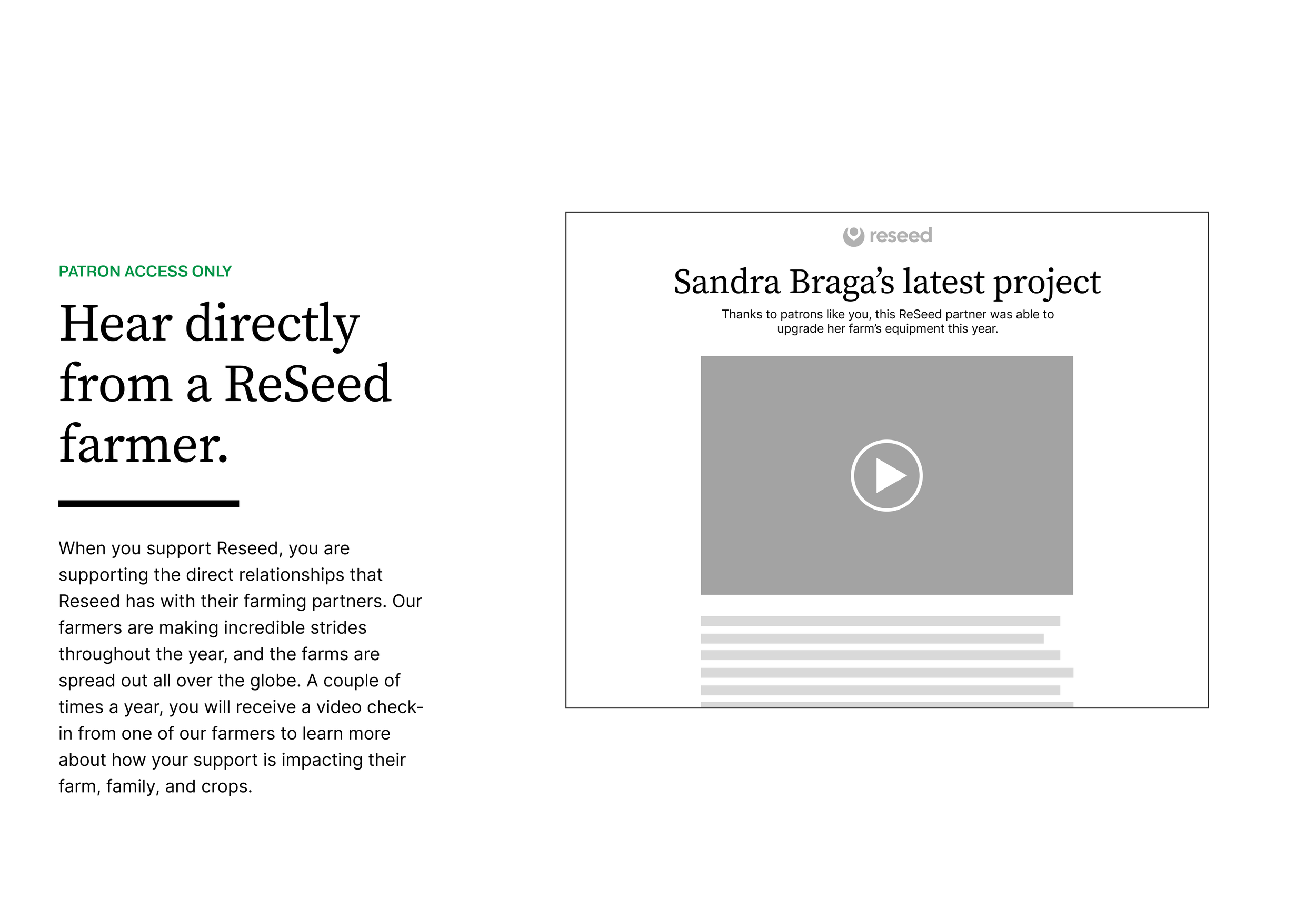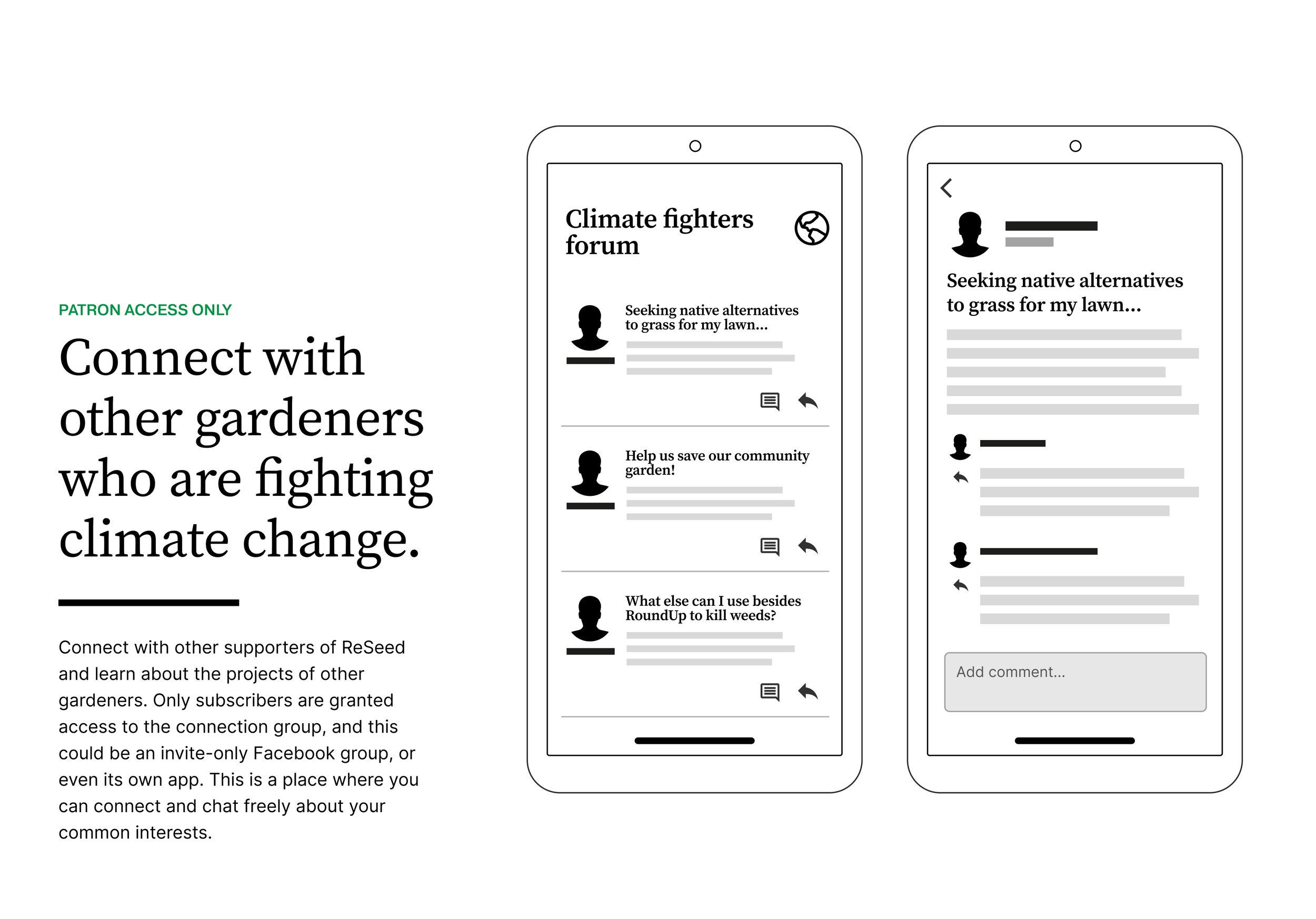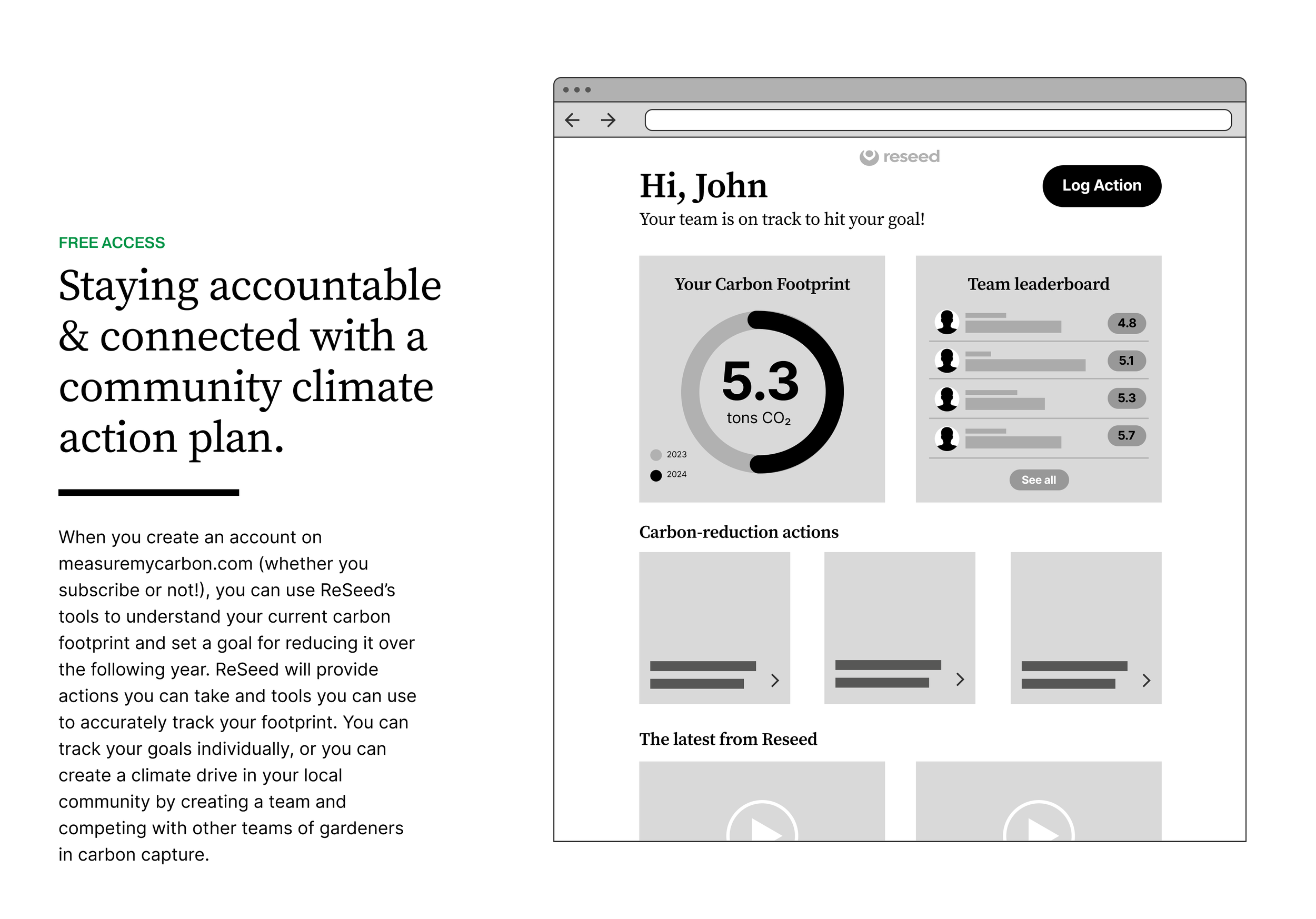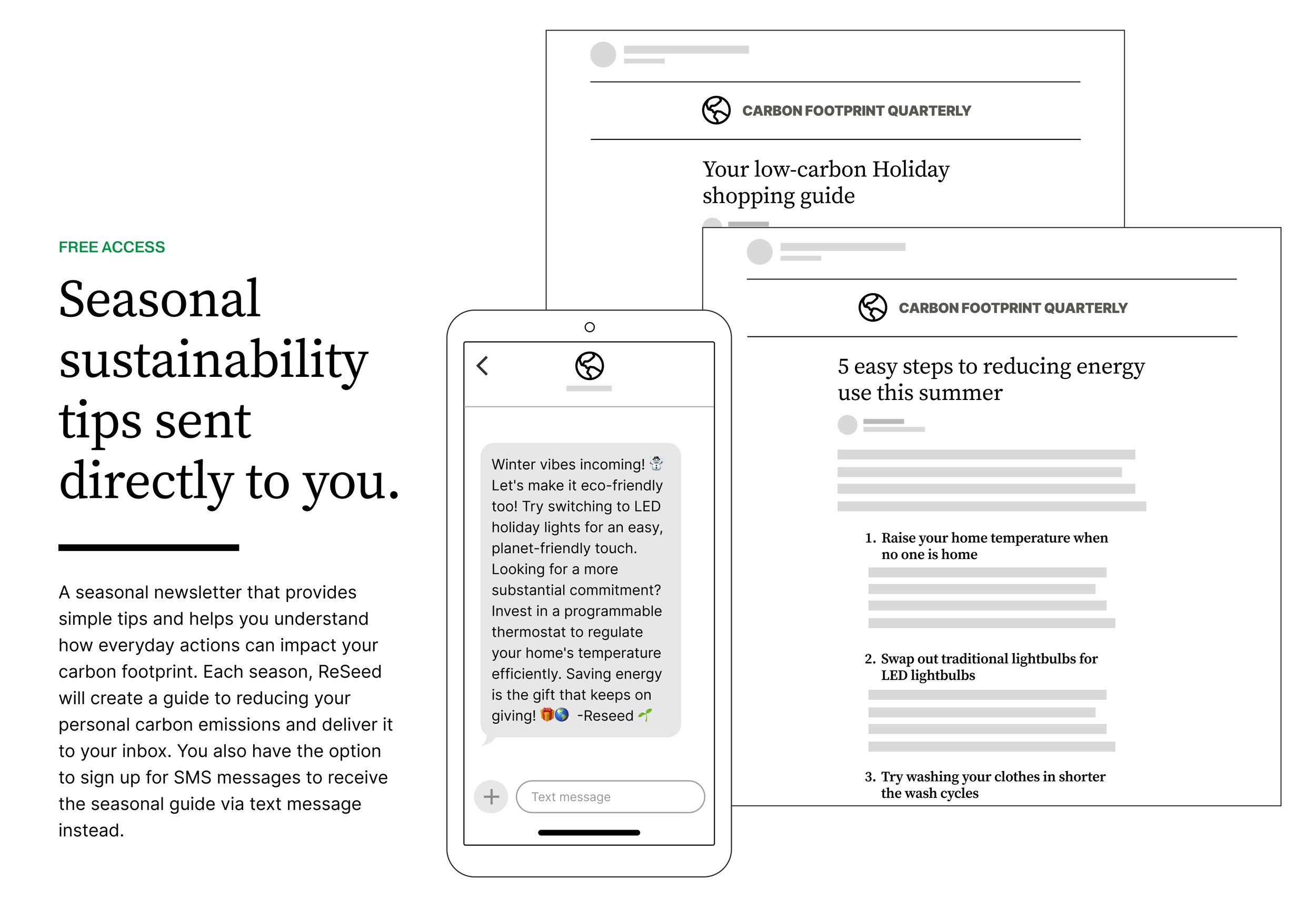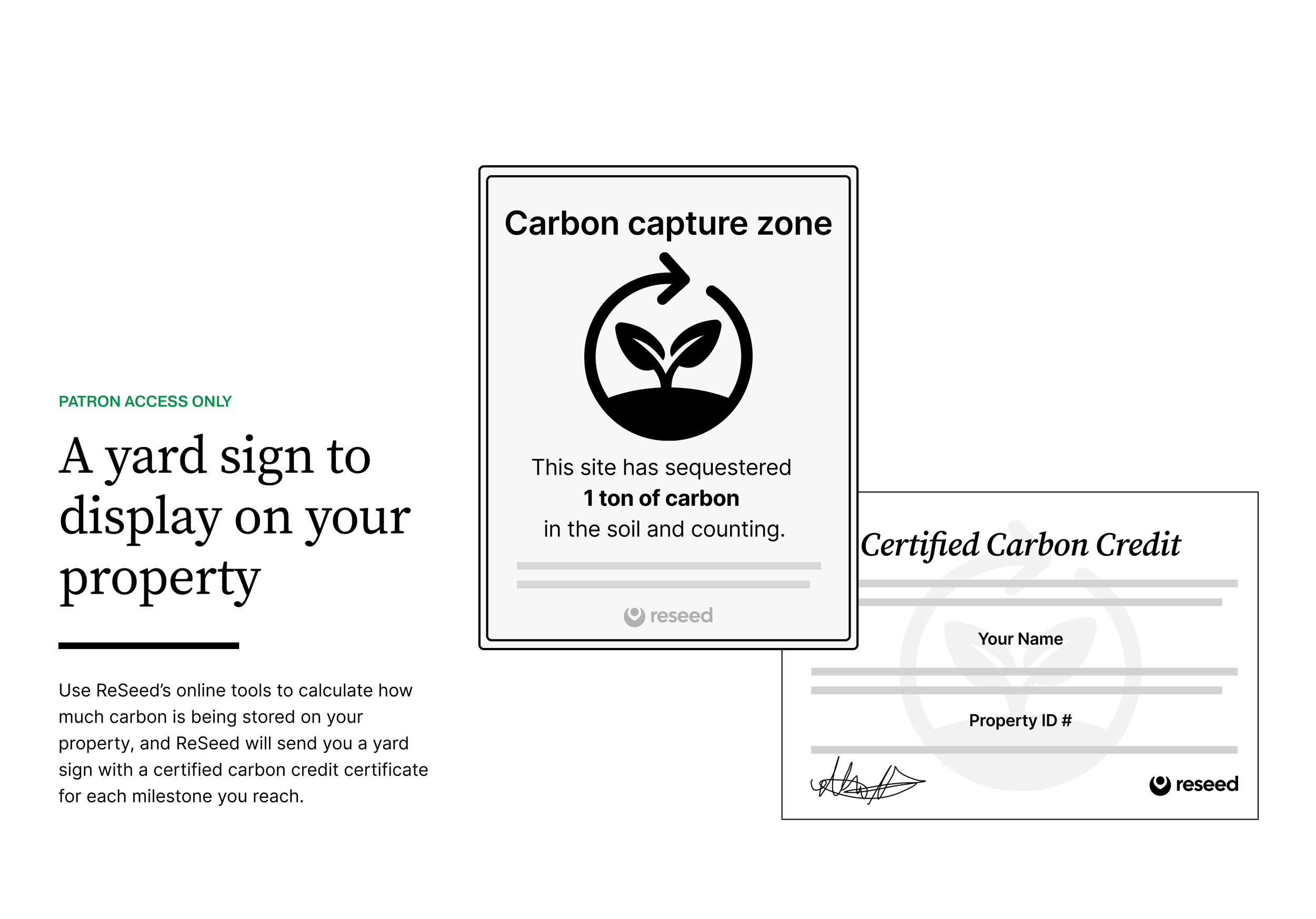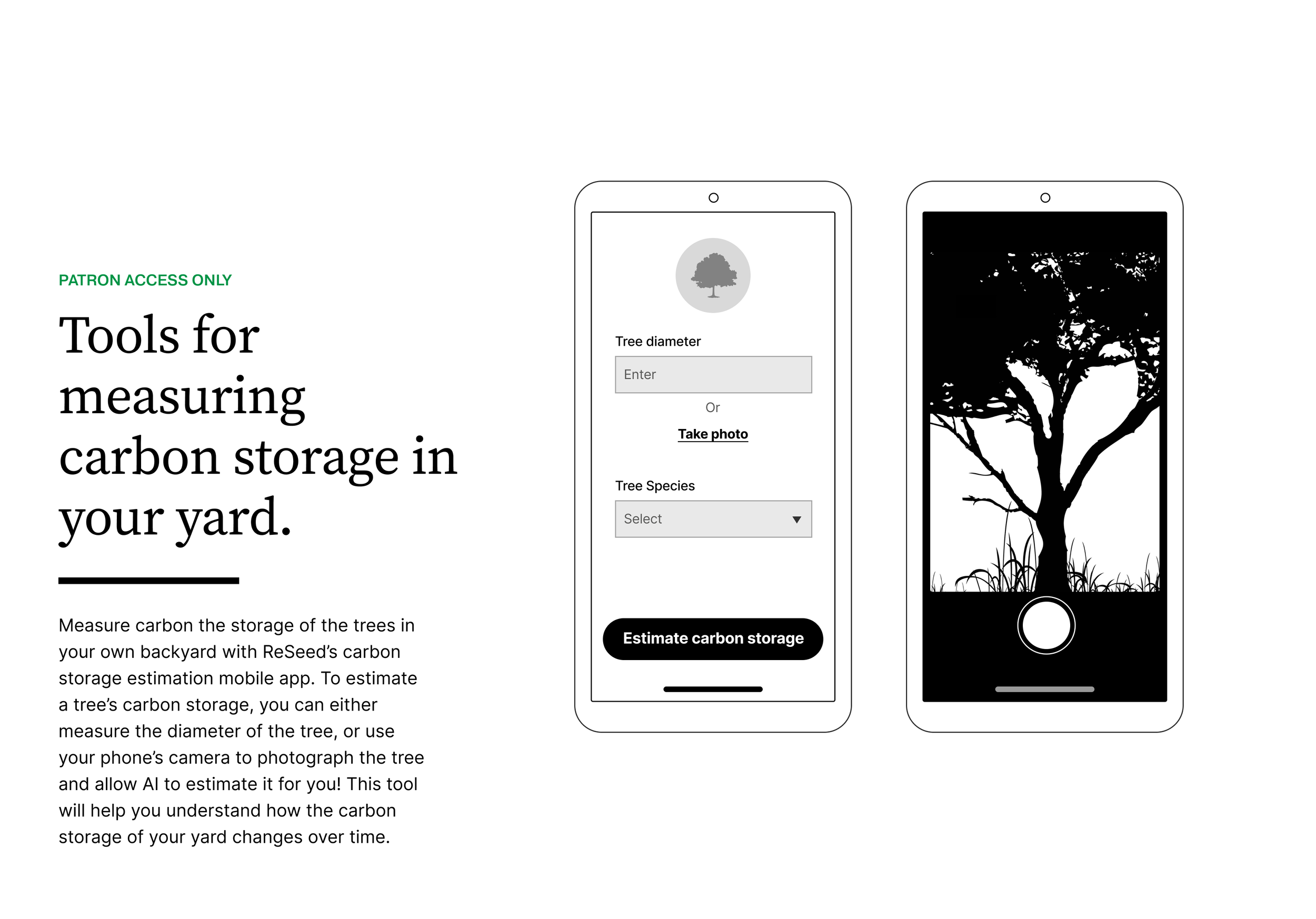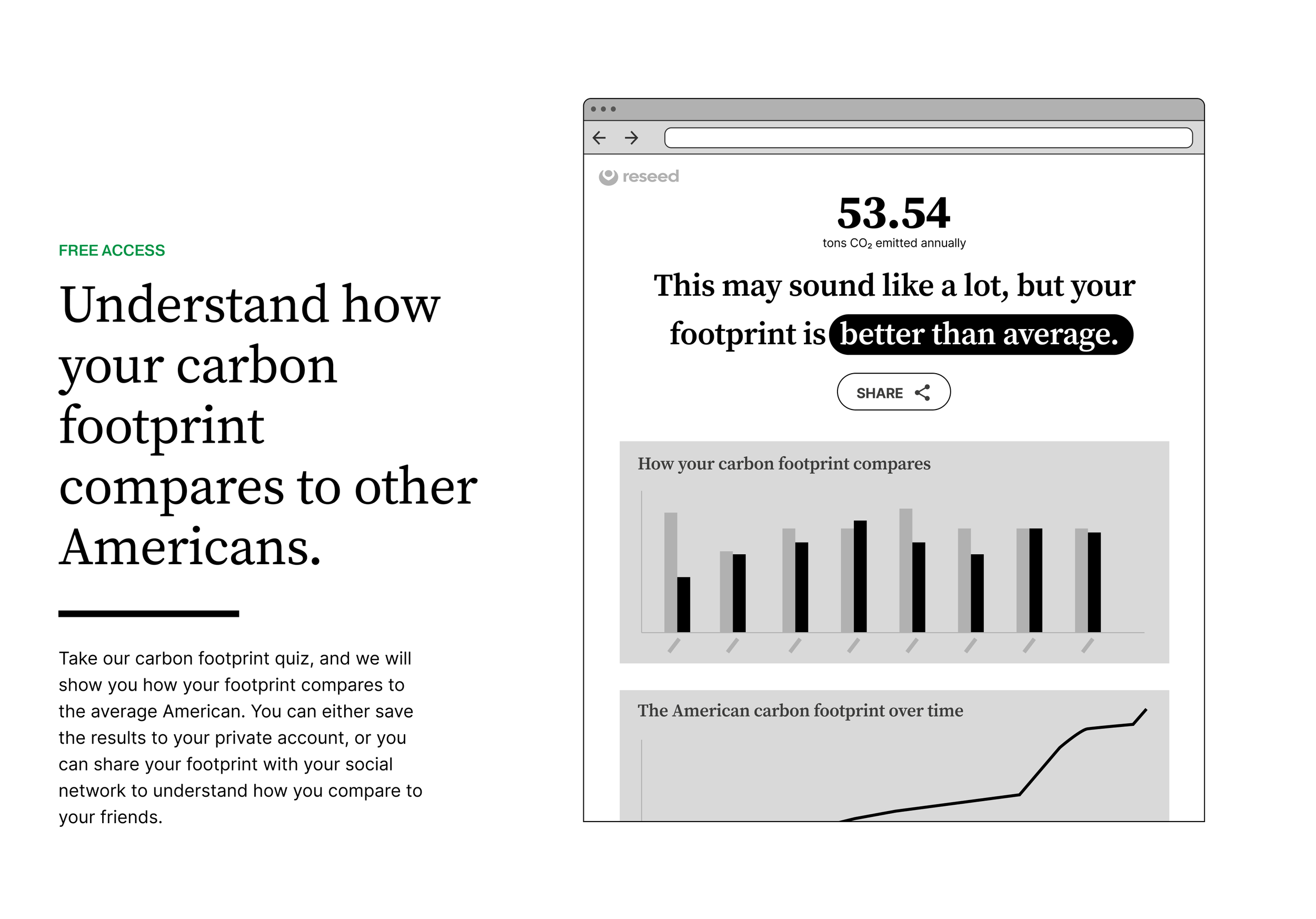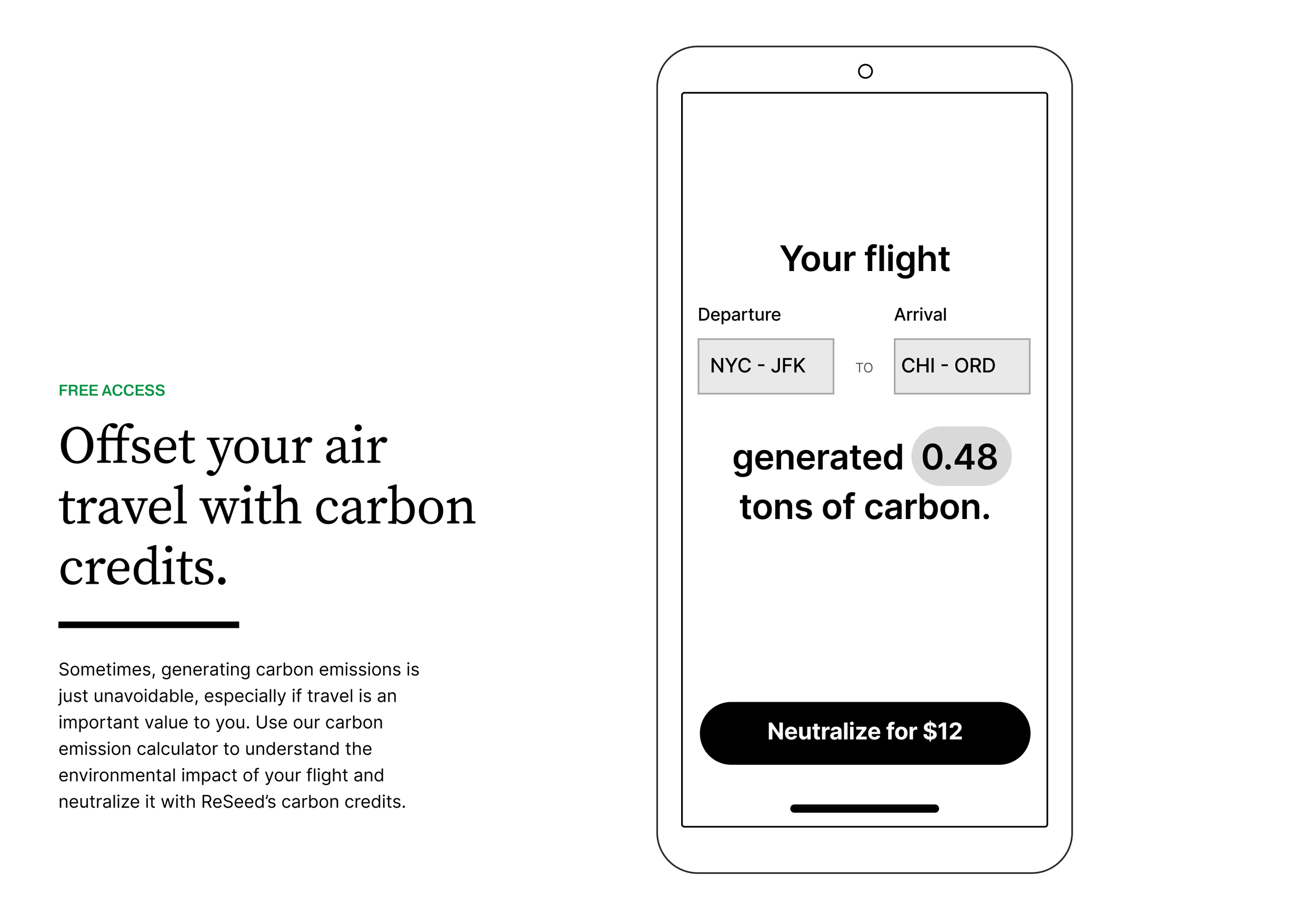seeds of an audience 🌱
Transforming a carbon credit marketplace into a community of gardeners for social good
ReSeed started in 2022 as a B2B carbon credit marketplace, but the demand for carbon credits first sprang up in the late 90’s when carbon emissions limits were first enacted. Since then, carbon credits have been recognized as a viable climate solution in the Paris Agreement, but many players in the “emissions trading” industry have adopted practices as murky and machiavellian as the term sounds. ReSeed, however, is different. While the field of carbon credit marketplaces varies widely in reliability and transparency, ReSeed stands out for its integrity and positive social impact.
In the short time that it has existed, ReSeed has proven product-market fit in the business sphere through its certification structure that deploys reporting tools for farmers on the ground as well as satellite and blockchain technology for extra accuracy. Businesses that are looking for reliable, high quality carbon credits have found their supplier with ReSeed, and with an injection of confidence and venture capital in 2023, ReSeed turned to a new horizon: the consumer market.
Problem: the MVP was not connecting with the target audience
Snapshots of ReSeed’s MVP
The ReSeed team started with a strong hunch that gardening hobbyists are primed to be early adopters and launched an MVP in partnership with GardeningKnowHow.com. Shortly following launch, however, it became clear that the product wasn’t connecting with the audience. The trickle of traffic that came to ReSeed’s consumer site through GKH ad units quickly bounced. Before ReSeed broadened its marketing strategy, however, they needed to understand the root of the problem.
That’s when I joined the project as a Design Researcher to dig deeper into the target audience’s core values, understand the competitive landscape, and test new design & brand voice directions with target users.
My approach: Conduct a 4-pronged audience research initiative to learn why
With the ultimate goal of clarifying the brand message and product offering, I designed a research initiative to better understand the needs of home gardeners and how those needs might intersect with ReSeed’s mission. I wanted to know where ReSeed sits in the competitive landscape, how their current target is thinking about climate change, and what their audience is willing to pay for.
Understand the Competitive landscape
I started with a competitive audit framed around the questions: As a citizen who is concerned about my impact on the environment, what can I do? Where can my money do the most good? Who/what makes me feel the best about my impact?
The audit’s sweeping proportions delivered a comprehensive view of nonprofits and B Corporations in the climate activism space which served as the project’s first deliverable.
Competitive Landscape deliverable (FigJam)
One competitor from the audit that stood out was 4Ocean. With reported annual revenue in 2022 of $15.8M and over 3M followers on social media, their reach & success is clear. Perhaps 4Ocean's success relates the tangible patron value they offer in the form of bracelets made of recycled plastic from their cleanup efforts, or maybe their success comes from their clear-cut, highly supportable mission. Today’s media landscape is full of rancorous debate related to climate change, but 4Ocean has found a non-controversial call to action. No one is arguing that plastic is good for the ocean. It had me thinking: How might ReSeed similarly cut through the noise of the politics on this issue?
ReSeed’s Call to Action
4Ocean’s Call to Action
Run an audience survey with the existing target
Next up, a qualitative data grab. ReSeed’s partnership with GardeningKnowHow.com enabled access to an ad slot in their weekly newsletter, where I deployed a survey aimed at testing ReSeed’s core hypothesis of gardening hobbyists as primed users. The survey gave us a clearer picture of what language resonates (and what doesn’t!) with the core audience, as well as level of engagement with the cause of climate change.
Luckily, ReSeed’s work fosters 3 of the major categories rated as “highly effective” by respondents: reforestation, preserving the rainforest, and supporting sustainable farmers.
The results of the survey would prove immensely valuable as the website’s marketing copy underwent a rewrite. The survey also provided directional guidance on potential product improvements and positioning strategy. Based on these results, the team opted to dig further into an approach that would enable more gradual relationships with patrons instead of leading with the ask for monetary support.
Test new ideas in moderated interviews
The third phase of research was a rigorous test of product-market fit. Pulling from the insights of the audience survey, I designed 10 possible product and content offerings that ReSeed could provide patrons in exchange for membership, and conducted in-depth conversations with a select group of survey respondents to gauge level of interest and willingness to pay.
Would gardeners actually want any of these offerings? Is there really any way to enhance the refreshingly analog experience of gardening outdoors with a digital tool? How strong is gardeners' connection with their hobby and the fight against climate change? It was time to find out.
“Wow, this would be awesome I think. I feel excited about … being able to create a team and to see how well [we] do. I like the carbon reduction action ideas.”
—Emma, lifelong gardener
“This is very enticing. I would be more likely to donate for this.
I would plant them and try to multiply them. I would give [them] to those around me.
It would make the efforts of the project feel more significant to share.”
—liam, gardener for 15 years
It was heartening to learn that the gardeners interviewed already care deeply about climate change because they witness the effects in their own backyards each growing season. The gardeners I spoke with were knowledgeable about the issue, well-connected with their local ecology, and fired up and ready to make a difference however they could. What resonated most with interviewees were community-driven elements and the opportunity to measure their climate impact. From here, we moved into the final research phase with high directional confidence.
Moderated interview deliverable (FigJam)
Pressure-test new directions
In the final phase of research, two brand-new visual/copy directions were tested against each other with testers sourced from Usertesting.com’s vast user base. Testers had no prior knowledge of ReSeed, were screened for “gardening” and “climate change” as a hobby and social cause they care about, and asked to compare and contrast the prototypes for clarity, trustworthiness, and willingness to pay.
In this concept, ReSeed looks and talks like a tech company, touting the powerful nature of their tools and impact. Patrons pay for access to the platform.
In the unmoderated environment, testers really let it rip with their opinions, both positive and negative. We learned that many testers are rightfully skeptical of the climate solutions space and look to counteract that feeling by digging deep into the inner workings of the business and how impact is being measured. Some testers expressed jubilant surprise at the idea that they could actually make a difference in their own backyard, while others still felt they needed to learn more before making a decision.
Testers even chimed in on details we weren’t expecting, such as the brief image of the planet heating up in one of the explainer videos. While this illustrates the cause, testers suggested the hot earth was “so scary” and “depressing”. Quotes like these with accompanying videos served as a convincing tool for building empathy with potential patrons and getting buy-in from shareholders on the scope of the impending website redesign.
In this concept, ReSeed leads with the story of the individual farmer and looks more like a media company or nonprofit. Patrons get a gift in exchange for their support and engage in a community effort.
Proposed solution: A community-driven platform for sustainable gardening
By the end of the initiative, there were clear pillars established for ReSeed to build on. Below are my core recommendations:
lean into community
Many of the gardeners we spoke with were drawn to the hobby because of the community elements. ReSeed can generate buzz through a member campaign that creates communities across the country who are focused on a single goal: capturing more carbon in their gardens. Membership allows each community to connect and compare carbon capture methods, and even connect with farmers across the world doing the same work.
Details, details, details (plus an SEO boost)
It’s understatement to say it’s difficult to get website traffic without decent SEO. It’s difficult for Google’s crawlers to find your site without lots of content that connects back to trending or high-traffic topics around the web. Providing full details on ReSeed’s projects in the form of longer, blog-style posts will help answer both the SEO problem and the task of building trust with potential customers. Win, win!
tangible patron value
To put it simply: GIVE something back to your patrons for their support! In our talks with potential users, speaking about a packet of seeds they could receive in exchange for support elicited a noticeable rise in excitement. Tokens like this create an emotional connection and provide a physical reminder of the brand that is more effective and pleasant than any annual email marketing drive could ever be.
Personalize your tools
When courting a niche audience, it’s important to treat them like the experts they are. Generic gardening content can be found all over the web for free, so if ReSeed expects users to pay for access to the platform, the content must be customized to the specific needs and geographic area of the user and adapt to the user’s inputs. One of the moderated testers said it best: “Don’t just send the seeds, send me information. [ I want to know ] these seeds grow best in this type of soil, what type of soil would be best for it, how exactly to care for it and make it successful”.
Recommendations were presented to ReSeed leadership and shareholders as the project came to a close. Following the final handoff, ReSeed’s product team used the remnants from the study and core recommendations to reimagine the consumer-facing website and marketing strategy with their overseas product team. The new site is slated to launch in Spring 2024! 🚀


